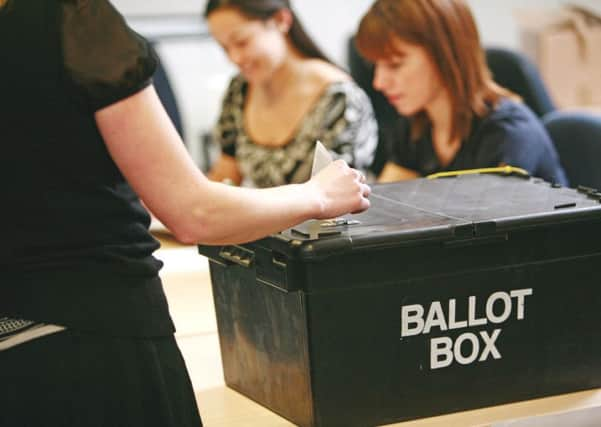Brian Monteith: SNP are masters of the fine art of fake grievance


All political parties do it to some extent but few are as masterful at it as the SNP, who have turned the manufacturing of false grievances into an art form.
I write this after observing the reactions on social media to the publication of the proposed new boundaries for parliamentary constituencies across the whole UK.
Advertisement
Hide AdAdvertisement
Hide AdThese changes have been a long time coming for there has not been an adoption of revised boundaries in Scotland since 2005, and since 2010 in the rest of the UK.
In that time our population has grown considerably and more importantly, shifted around the country, with some areas growing in number while others have fallen. Take Yorkshire, with its 3.8 million voters – it has 54 MPs, while Scotland (excluding the island constituencies) with its 3.8 million voters has 57 MPs.
Population movements can also distort election results, with people moving out of dense urban areas into more spacious suburbs resulting in it being easier to win smaller city-centre seats than larger conurbations.
In the 2015 election the average number of electors in a Conservative seat was 73,348 while in a Labour seat it was 69,533 – if the new boundaries are accepted that will change to become a closer 74,551 for the Conservatives and 74,869 for Labour.
We have also had a considerable number of scandals involving the expenses of MPs (and MSPs) that have encouraged a not undeserved climate of cynicism towards politicians, the result of which has been a common belief that the number of elected politicians paid from the public purse should be cut back.
Thus the Conservatives have campaigned for the number of MPs to be reduced from the current 650 to 600. Add that reduction to the much-needed review due to population change and movement and you have the new boundaries proposed this week.
For Edinburgh it means losing one seat, Edinburgh Pentlands, which will be merged with Livingston, and for Scotland it means a reduction from 59 to 53 MPs.
Cue faux anger by SNP MPs such as Stewart Hosie, who tweeted about the comparison of Scotland having 72 MPs back in 1998 and now having its representation cut to 53, despite an increase in population of around 250,000 in that time.
Advertisement
Hide AdAdvertisement
Hide AdMore observant readers will notice the date he specifically chose of 1998 was before the arrival of the Scottish Parliament, when Scotland was intentionally over-represented at Westminster to take account of our smaller size.
After the Scottish Parliament came into being that over-representation was no longer required and the numbers were cut to 59. Now, following the cut in all MPs by 50 and the fact that the UK’s population has grown considerably more than Scotland’s, the rebalancing sees our number fall further.
Hosie was creating a false grievance that Scotland’s influence was being cut back, when the truth is that its influence at Westminster remains relative to our size – while our influence over our own affairs through Holyrood has grown substantially.
No sooner had Hosie tweeted his fake news than others rose up and joined in – embellishing this false grievance to make us Scots appear hard-done-by and win converts.
The fact is that we have a separate Scottish Boundary Commission that draws up Scotland’s parliamentary divisions, with all the proposals open to consultation and then appeal, before being applied at the next general election. While Scotland has lost six constituencies, England’s larger West Midlands has lost six too and will have the same number as us.
The boundary changes are nothing to get excited about and certainly no basis for suggesting Scotland has a grievance for being mistreated.